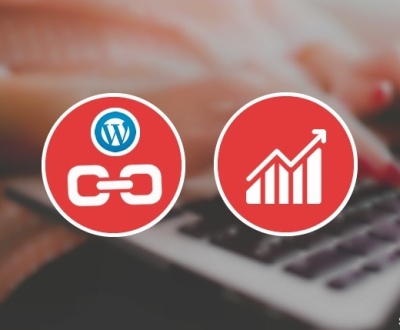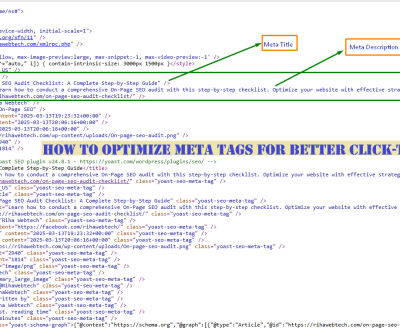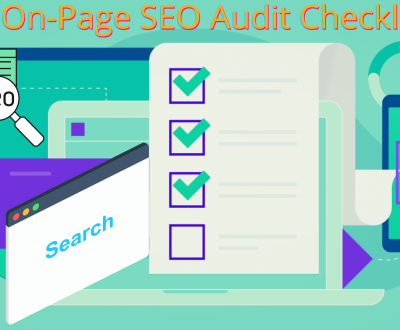On-page SEO Ranking Factors: The Ultimate Guide
Are you struggling to improve the rankings of your website on search engines? If yes, then you should consider optimizing your on-page SEO ranking factors. On-page SEO refers to the tactics used on your website to improve its visibility and ranking. Here’s a list of key factors to improve your on-page SEO ranking:
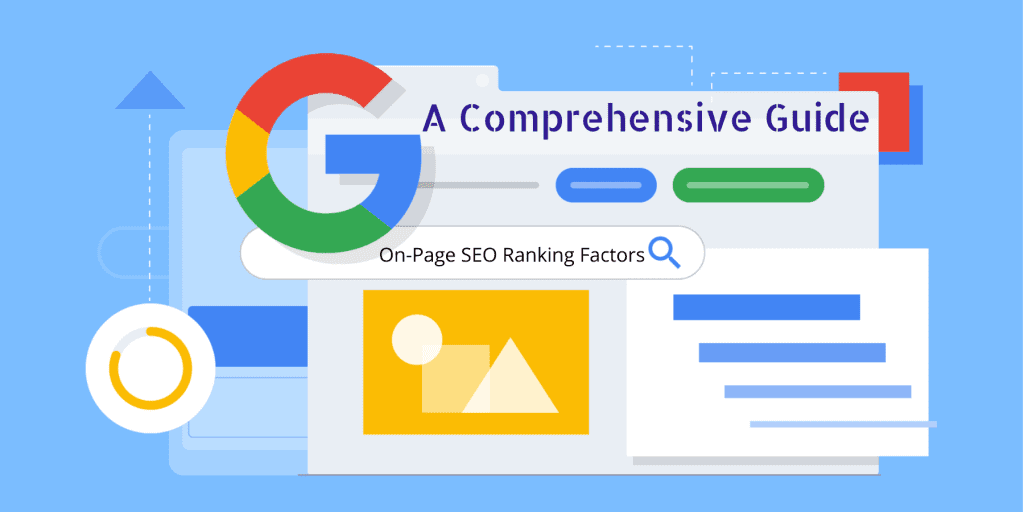
Top 12 on-page SEO ranking factors you need to know
1. Keywords
The first step to optimizing your on-page SEO is to choose the right keywords for your content. This involves researching and identifying the most relevant and valuable keywords for your niche or business. Place your keywords in your page titles, meta descriptions, headings, and content.
2. Page Titles and Meta Descriptions
Page titles and meta descriptions are crucial on-page SEO ranking factors. These are the first things that users see when they search for information online. Ensure that they are unique, descriptive, and contain your keywords.
3. URL Structure
Organize your URL structure logically. Use hyphens to separate words, avoid special characters, and make sure it reflects the hierarchy of your site content.
4. Headings
Headings organize your content and make it easier for users to read. It’s crucial to include your target keywords in your headings to signal to search engines that your content is relevant to the search query.
5. Content
Providing original, high-quality, and relevant content is crucial for improving your on-page SEO ranking. Ensure that your content answers users’ search queries and adds value to their experience on your website. Use your target keywords naturally and avoid keyword stuffing.
6. Images and Alt Tags
Images can improve the user experience and engage your audience. Be sure to use alt tags to describe your images and include relevant keywords. This makes it easier for search engines to understand your content and improves your overall rankings.
7. Internal Linking
Internal linking connects your web pages, making it easier for users to navigate your website. It also helps search engines to understand the structure of your website and the relevance of each page. Be sure to use descriptive anchor text that includes your keywords.
8. Add External Links
Linking to reputable external sources can enhance the credibility of your content. Ensure that the links are contextually relevant and add value to the user’s experience.
9. Schema Markup
Schema markup helps search engines understand your content better. Implementing structured data can enhance your visibility in search results through rich snippets.
10. Mobile Friendliness
A mobile-friendly website is crucial for SEO. Use responsive design, ensure fast loading times, and test your site on various devices.
11. Site Architecture
A clear and organized site architecture helps both users and search engines navigate your site more effectively. Create a logical hierarchy and ensure you have an intuitive menu structure.
12. Site Speed
Website loading speed is a significant ranking factor. You can use tools like Google Page Speed Insights to evaluate and improve your site speed. Aim for a loading time of under 3 seconds.
Importance of On-page SEO in Search Engine Rankings
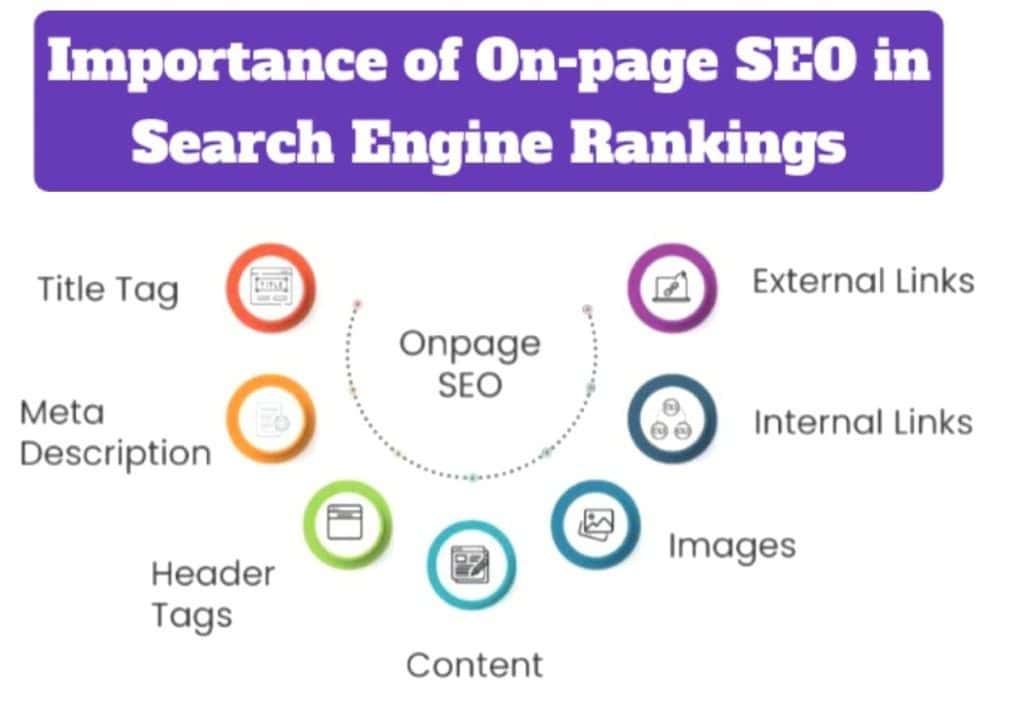
On-page SEO refers to the practices and techniques applied directly on a website to enhance its position in search engine results pages (SERPs). It plays a crucial role in search engine optimization and can significantly impact visibility, traffic, and overall site performance. Below are some key reasons highlighting the importance of on-page SEO.
Improved Search Engine Visibility
On-page SEO helps search engines understand the content of your website. By optimizing elements like titles, meta descriptions, headers, and URL structures, you enhance the likelihood of your pages being ranked higher. Search engines use this information to determine the relevance of your content to specific search queries.
Enhanced User Experience
A well-optimized on-page structure not only caters to search engines but also to users. Factors such as easy navigation, quick loading times, and mobile responsiveness contribute to a better user experience. When users have a positive experience on your site, they are more likely to spend time exploring, which can boost rankings.
Increased Click-Through Rates (CTR)
Optimized meta titles and descriptions can entice users to click on your link in the search results. A compelling title with a clear call-to-action can significantly improve your CTR, which is a factor that search engines consider when ranking sites.
Better Indexing
Proper use of HTML tags like header tags (H1, H2, etc.) and alt text for images helps search engines index your site more effectively. This better indexing improves the chances of your pages being discovered and ranked.
The importance of on-page SEO cannot be overstated in today’s competitive digital landscape. By focusing on optimizing various elements of your website, you can improve search engine rankings, enhance user experience, and drive more targeted traffic. Investing time and resources into on-page SEO is essential for achieving long-term success online.
Conclusion
By optimizing your on-page SEO ranking factors, you can improve the visibility of your website and attract more relevant traffic. These tactics are relatively easy to implement and can help you achieve significant results over time.
Check out these related posts
About us and this blog
We are a digital marketing company with a focus on helping our customers achieve great results across several key areas.
Request a free quote
We offer professional SEO services that help websites increase their organic search score drastically in order to compete for the highest rankings even when it comes to highly competitive keywords.
Subscribe to our newsletter!
More from our blog
See all postsRecent Posts
- How to Add an Internal Link in WordPress April 11, 2025
- How to Optimize Meta Tags for Better Click-Through Rates (CTR): A Comprehensive Guide April 11, 2025
- On-Page SEO Audit Checklist: A Complete Step-by-Step Guide March 13, 2025

